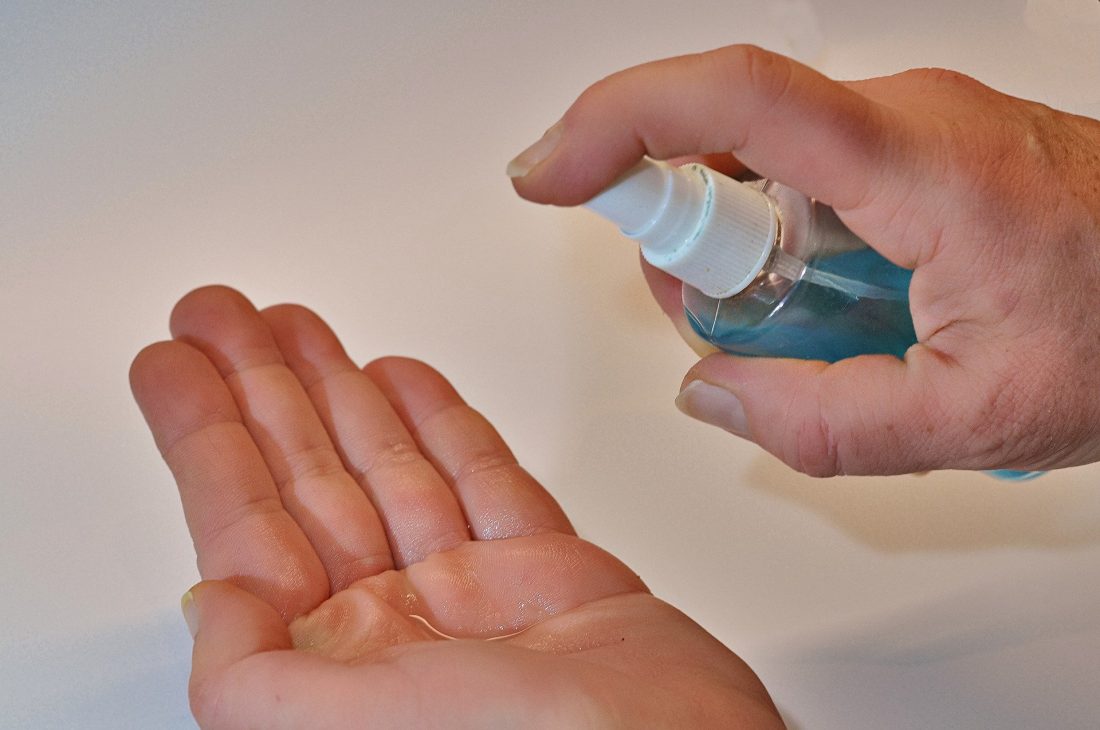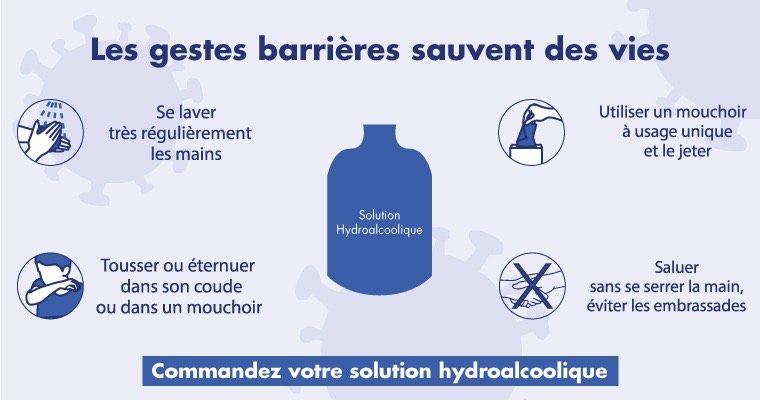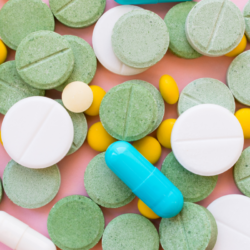In our modern world, where hygiene is paramount, hydroalcoholic gel has become an e ssential part of our daily lives. But with so many choices available, how do we select the most effective product for our needs? This article guides you through the essential criteria for choosing a hydroalcoholic gel from a pharmacy, highlighting the importance of antibacterial efficacy and precautions for use to protect the health of your skin.
Hydroalcoholic gels must be effective first and foremost
Hydro-alcoholic gels are essentially effective for disinfecting hands. Practical, they have the advantage of requiring neither water nor a towel. A small amount of antibacterial gel and 30 seconds of rubbing are enough to eliminate 99.9% of bacteria.
For a hydroalcoholic gel to be optimally effective against a virus, Afssaps (the French National Agency for the Safety of Medicines and Health Products) recommends that it should be chosen according to certain very specific criteria. Hydroalcoholic gel is tested to standard NF EN 14476, which means that its alcohol concentration is between 60% and 70% (or between 520 and 630 mg/g).
How to use your antibacterial disinfectant gel correctly
- The recommendation during covid-19: use a hydroalcoholic gel if you can’t wash your hands.
- In this case, place a dab of gel between your hands and rub them until they are dry.
- So far, all health professionals are unanimous: there is no better solution than to wash your hands properly with soap.
- In all cases, the ANSM reminds us that these products are to be used on visibly unsoiled hands, and that it is crucial to respect a friction time of at least thirty seconds until the hands are dry.
- You can find the procedure for using your hydroalcoholic rub recommended by the World Health Organisation by clicking on this link.
How to choose the right hydroalcoholic gel to disinfect against the coronavirus
Washing your hands with soap and water is not always possible. However, it is still advisable. For regular hand washing, opt for gentle formulas suitable for sensitive skin, such as Avene Hydra Cleanance cream cleanser.
If you can’t wash your hands with water, use a hydro-alcohol gel. But did you know what’s really in it?
In contact with the skin and without rinsing, it is essential to use suitable ingredients. If you’re looking for a disinfectant hydroalcoholic gel, the product label must specify the type of biocide and guaranteed action. If it is not present, this means that the product is only a cosmetic to be used for good hygiene.
At Soin et Nature, we offer you the Hydroalcoholic Solution formula n°1 recommended by the World Health Organisation for hand antisepsis, formulated by our state-qualified pharmacists. This hydroalcoholic gel is active against COVID-19. It can be used without water or a towel, and dries by itself. Developed with your health in mind: it goes everywhere with you, whenever you need it, to protect you from contagion. Hypoallergenic, enriched with moisturising agents. Formula used in hospitals.
What are antibacterial gels made of?
Hydroalcoholic solutions are sterile gels that prevent the proliferation of bacteria by eradicating them.
Antibacterial gels contain :
- alcohol (ethanol, isopropanol): an active ingredient that acts quickly on bacteria, viruses and fungi, and an antibacterial agent.
- an emollient (e.g. glycerine or Aloe Vera), to compensate for the drying effects of the other ingredients in the formula, so as not to damage the skin as hands are disinfected.
- an antiseptic (hydrogen peroxide or 0.5% chlorhexidine) to reinforce this biocidal action.
Hydroalcoholic gel should not replace hand washing
Remember that “traditional” hand washing with soap and water is recommended whenever a drinking water point is available. Careful hand washing with soapy water eliminates the vast majority of micro-organisms, by accentuating the slippery properties of our own skin, whereas hydroalcoholic gel kills pathogens but leaves them on the skin.
Excessive use of hydroalcoholic solutions could encourage the emergence and proliferation of resistant bacterial strains, which is not the case with soapy water. If there is no water available, a hydroalcoholic solution should be used, particularly in communal environments (public transport, public places, etc.).
Hand disinfection and prevention of warts
Hand disinfection plays a crucial role in preventing the transmission of many germs, worms and infections, including warts. Warts are caused by the human papillomavirus (HPV), a highly contagious virus that can survive on different surfaces and spread through direct or indirect contact. Rigorous hand hygiene can therefore help reduce the risk of infection. An effective procedure involves using soap and warm water, carefully rubbing all parts of the hand, including the fingers, back of the hand and wrists, for at least 20 seconds.
Using an alcohol-based hand sanitizer may be an option when soap and water are not available. However, it is essential to note that hand disinfection is only one of many preventive measures. Avoiding touching public surfaces, not sharing personal items such as towels and razors, and keeping the skin on your hands healthy and intact can also help prevent the spread of HPV.
What are the benefits of hydro-alcoholic gel?
Hydro-alcoholic gel has become an indispensable tool in our daily lives, particularly in the current pandemic context. Its main advantage is that it enables hands to be disinfected quickly and effectively without the need for soap or water.
Hydro-alcoholic gel is made up of alcohol, water and thickening agents that work quickly and effectively against viruses and bacteria. This hydro-alcoholic solution is very practical for disinfecting your hands when you’re out and about or when you don’t have access to a water point.
What’s more, using hydroalcoholic gel helps to limit the spread of infectious diseases, particularly those transmitted by contact. By regularly disinfecting your hands, you avoid contaminating others and yourself.
Another advantage of hydro-alcoholic gel is that it’s easy to use and doesn’t require much effort. Simply pour a small amount of product into the palm of your hand and rub your hands together until they are dry. This method is quick and does not require rinsing.
Finally, hydroalcoholic gel is available in a range of formats, making it easy to carry and use in any situation. There are pocket-sized bottles, dispensers for use in public places, refills for soap dispensers, etc.
Hand washing or disinfection is necessary several times a day in the event of an epidemic.
Why can hydro-alcoholic gel damage hands?
Hands, often neglected, are one of the most important parts of our body. They are involved in almost every task we perform, but they are also exposed to many external factors such as chemicals, cold and heat. The use of hydro-alcoholic gel, which has become essential for many of us, can cause considerable damage to our hands. In this part of the article, we’ll explore why hydroalcoholic gel can damage our hands and what we can do to protect them.
The aggressive ingredients in hydro-alcoholic gel
Hydro-alcoholic gel contains harsh ingredients such as ethyl alcohol and isopropanol. These ingredients can dry out the skin and make it more sensitive.
Frequency of use
Repeated use of hydroalcoholic gel can damage the skin’s natural barrier, making it more vulnerable to dryness and irritation.
How can I relieve hands damaged by using hydro-alcoholic gel?
It’s essential to keep the skin hydrated by using a moisturiser regularly. Try using a moisturiser that contains nourishing ingredients such as sweet almond oil, jojoba oil or avocado oil.
Avoid irritating products
Try to avoid irritating products such as soaps and harsh detergents, which can cause further damage to already damaged skin.
Use hydro-alcoholic gel sparingly
Try to use hydro-alcoholic gel sparingly and only when necessary. You can also opt for gentle solutions to disinfect your hands, such as soap and water.
In conclusion
- It’s best to buy your hydroalcoholic gels from a pharmacy to be sure of the guarantees required and the action you’re looking for.
- Check the effectiveness of these hydroalcoholic products by looking for EN14476 certification on the bottle.
- go for small sizes, which are easier to carry
References
- https://www.cdc.gov/handwashing/show-me-the-science-hand-sanitizer.html
- https://pubmed.ncbi.nlm.nih.gov/21691245/
- https://pubmed.ncbi.nlm.nih.gov/21976190/






